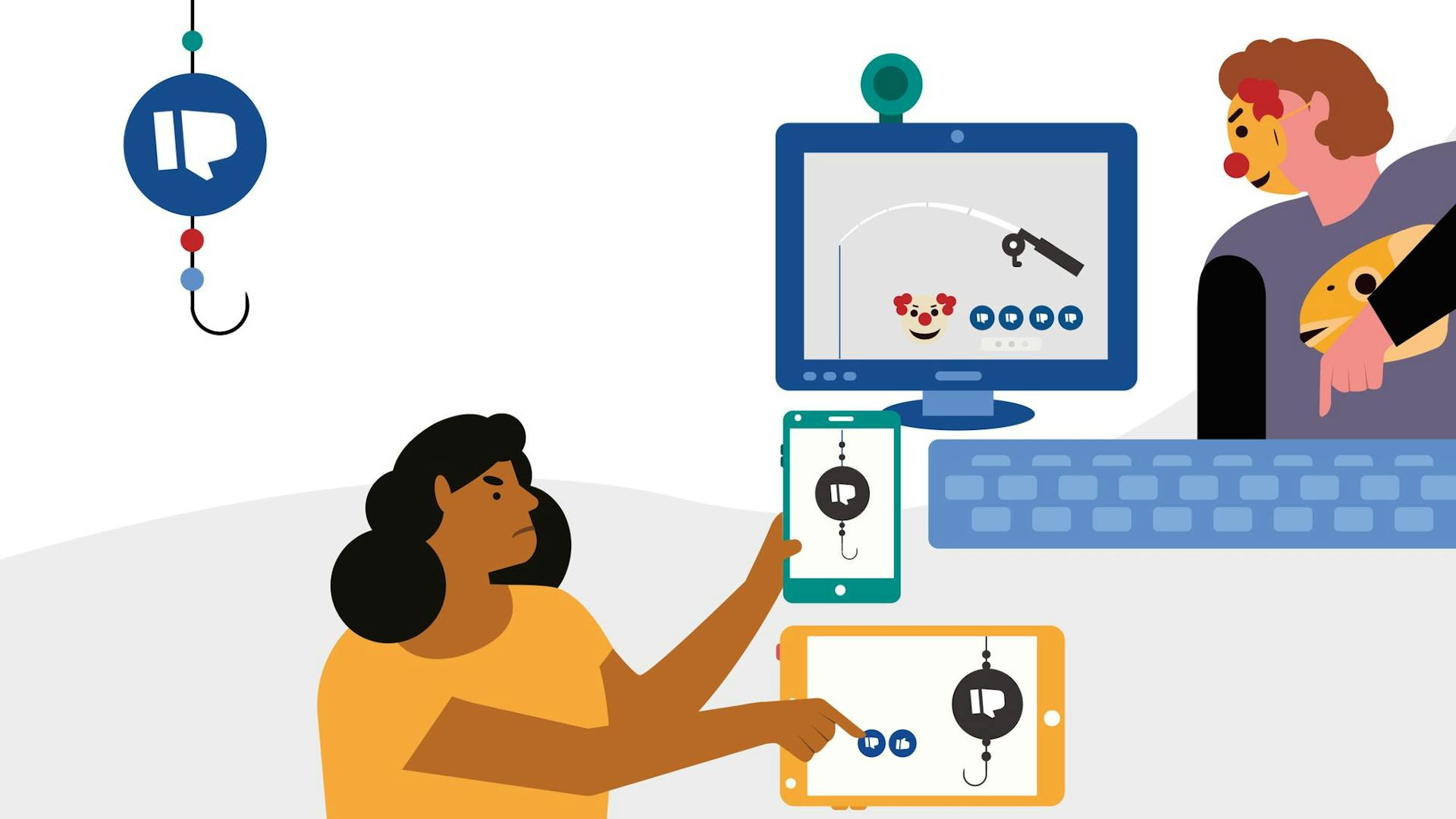
Who hasn’t read, or received, nasty messages online? From comments on YouTube videos, or replies to a tweet, trolls are no longer lurking under a fairytale bridge – they’ve gone hi-tech and are invading our personal lives. But that doesn’t have to be the end of the story
When I was younger, trolls were cute dolls with wild hair; now they’re distinctly less cute. A ‘troll’ is someone who makes nasty comments online to anger and upset others.
The word ‘trolling’ actually comes from fishing – it’s a technique where you cast out bait to get fish. This is, essentially, what trolls do. They send hurtful comments as bait, hoping you’ll respond. Before you know it, you’re in a tug of war situation, where no one wins.
This behaviour is made easy by the anonymity of the internet, where trolls feel able to say things they wouldn’t in real life. The reasons why they troll are complex, but, like bullies in real life, sometimes they’re struggling with their own pain.
If you’re on the receiving end, this may not soften the blow. But having a plan of action can help you to keep calm and maintain control. Here are some steps to take if you encounter trolling, and ways to heal after an attack.

1. Pause – Think first
When a troll makes a nasty comment, it’s natural to want to defend ourselves. But think about the likely outcome. Will they aplogise and move on, or continue to lash out?
Often, trolls do what they do to get a response. If you believe they’re looking to learn, you may want to respond. However, be aware that some people don’t want their minds changed.
2. Save evidence
If you’re being trolled on a regular basis by the same person (or group of people), take screenshots of the comments or messages. Saving evidence can help if you decide to take legal action against them.
3. Take action
Being attacked by a troll can feel like a violation. One way to gain control is to take action. This usually means deleting comments, blocking, and reporting the user. This lets the platform know that someone is harassing others online, and they can explore the matter further.
4. Check your settings
Make sure your social profiles are a safe environment – remember that you choose who you interact with. Check your privacy settings and have an audit – go through the people you’re following, and consider how their content affects your mental health. If they make you feel bad about yourself, hit unfollow.
You can also mute certain words or phrases. Check the settings on the social media site you’re using, or speak to someone in its help team to support you with this.
5. Tell someone
As trolling happens online, it often takes place behind closed doors – especially if the troll is direct messaging you. If you’re feeling affected by it, tell someone what’s going on. Outside perspectives can help you to recognise that their behaviour is unacceptable.
After the attack…
Social media can be a dark place sometimes, but it can also be beautiful. Try to focus on the positive
Once you’ve carried out the practical steps of dealing with a troll, it’s time to consider the emotional implications. Here are some tips to help you recover.
Give your feelings some space. It’s OK to feel angry and upset. Be honest with those around you, allow yourself to feel sad, and be supported.
Step away from technology. Taking a break from the online world can be incredibly beneficial, especially after experiencing trolling. Take a day or two to reconnect with your offline life, and enjoy the break.
Focus on positive engagement instead. Social media can be a dark place sometimes, but it can also be beautiful. Try to focus on the positive engagement you get from social media, and keep screenshots of positive or funny moments you want to remember.
Look after yourself. After a troll attack, your mental health may feel more vulnerable. Focus on self-care, and if you need professional support, get in touch with a counsellor.
Harassment and bullying are never OK, no matter what form they take. Remember this, and know you’re not alone. If we all work harder to be kind online, one day, trolls will join us.

